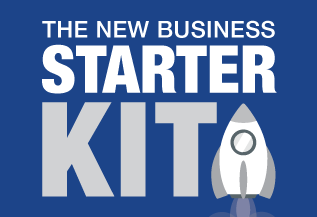Investment Properties
Buying an Investment Property
Stage 9: Post Settlement
Organise a Depreciation Schedule
A depreciation schedule prepared by a qualified quantity surveyor helps to maximise the cash return from your investment property each
financial year. To ensure that you claim the maximum depreciation deductions, make sure the report will last for the life of the property or
for forty years, as specified by the Australian Taxation Office.
Update Your Home Budget & Continue Saving
You’ve done a great job with your budget! You’ve successfully saved a deposit and bought an investment property. Now that you’re a property investor, your budget will still be important, just a little different.
With your own investment property comes new expenses. You are now responsible for council rates, water bills and if you property is in a unit, you will have body corporate fees too, so include these in your updated budget.
Repairs and home maintenance are another area to include in your budget. You may want to consider setting aside 1% of the purchase price for repairs and maintenance. If your home cost $350,000, plan to put away $3,500. You may not need to use that money from one year to the next, but it is good to have it there just in case you need it.
Keep saving! It’s so important to have savings there in case of some kind of emergency. You can keep your savings in a redraw account or an
offset account so your savings are working on your mortgage.
Make extra repayments
Making extra repayments on your loan is hugely worthwhile:
If you have a loan 30 year loan of $350,000 with an interest rate of 4%, an additional repayment of $200 per month will save you around $ 52,243 in interest repayments and reduce your loan term by about 5.5 years. |
Extra repayments reduce the principal amount of your loan and so that decreases the amount of interest you need to pay. Not only that, because you’re paying more, the time period of your loan will also decrease and you’ll fully own your home sooner.
Most lenders allow extra repayments on home loans and they also let you access those funds if you ever need them. This can be using a redraw facility or an offset account.
It also gives you a buffer in case you may accidentally make a late repayment.
If you have a home loan or other personal debt, pay down the other loan first as the interest on your investment property is tax deductible.
Avoid New Debt
Avoid taking on new debt, if you can help it. Think very carefully before you take on any new debt like a new credit card or a personal loan. Make sure you can afford it and that it is for something really worthwhile.
Not long after someone buys their investment property, they often come in to see us about getting a loan for a new car.
We do my best to talk them out of it!
It makes sense to borrow money to buy am investment property. It’s an investment. Property prices usually ago up and people always need somewhere to live.
A car, on the other hand is a depreciating asset. It’s losing value every single day you have it. To be honest with you, if you can’t afford the car you want, a car loan is a bad financial decision. You’ll be paying interest on the loan and the car will be losing value. You’re losing money in two directions.
You may want to consider buying a second hand car that will do the job in the interim while you save to buy the car you really want with
cash. You’ve successfully saved a deposit for your investment property, so what can stop you?
Personal Insurance
There’s no telling what the future holds and it pays to be prepared.
How would you pay your bills and your investment loan if you could no longer work? Do you have the right protection in place?
There is no set amount of cover that you should have. You need to make a sound estimate of your current financial situation and imagine what you and your family will need if you can no longer provide regular income.
Given the complexity of the matter, you should speak to a financial adviser to make sure you’ve covered everything important and have the right cover for you and your family.
Here’s a snapshot of what you should consider:
Life Insurance
Life insurance is a lump sum paid to your family (or your estate) when you die.
Consider a life insurance policy that, at a minimum, accounts for the value of the home loan. That way if tragedy strikes, you know that whoever is left behind doesn’t have the additional worry of how they are going to pay off the home.
If you a have a superannuation fund, it will have a life insurance component or a death benefit. The amount will be adequate in some situations, but it is well below the needs of families with dependent children. You may be able to increase the amount by paying extra into your super fund, or you may think about taking out a separate life insurance policy.
Take into account your partner’s working capacity. If you have insufficient life insurance, chances are they will have to work to help make ends meet.
Stay-at-home partners also should have some level of cover. If the stay-at-home parent were to pass away, the current income earner may need to spend more time at home with children and have less capacity to earn.
Total and Permanent Disability (TPD) Insurance
Total and permanent disability (TPD) insurance covers the costs of rehabilitation, debt repayments and the future cost of living if you are totally and permanently disabled. It is usually bundled together with life insurance. Check if your super fund offers TPD cover and whether this amount would realistically cover your family’s needs if you were unable to work again. Often you can opt to increase the TPD and life insurance benefit in your super fund by paying extra.
Income Protection Insurance
Income protection insurance covers up to 75% of your usual income if you can’t work for an extended period due to injury or illness. It is more comprehensive than workers compensation which only covers injuries that are work related.
Premiums vary, depending how much cover you need and are generally tax deductible (please confirm with your accountant). As with most insurance products, premiums increase with age because you are more likely to make a claim. Some products, however, offer level premiums where you always pay the same amount.
Many policy holders reduce their premiums when their children get older and need less support. You can also save on premiums by taking out a policy with a six-month waiting period before you can claim.
Trauma Cover
Also known as critical illness cover, this provides a lump sum payment if you are diagnosed with a specific serious illness, such as cancer or stroke. There are about 45 diseases that fall into this category for insurance purposes depending on the insurance company. If you have a family history of a serious illness, it would be worthwhile getting trauma cover.
Prepare your estate plan
Like insurance, estate planning is about preparing for the worst while hoping for the best.
It’s a responsibility you have to your family. If you become incapacitated or die, you need to have plans in place.
Making a Will is one of the key tasks of estate planning. It is about deciding what will happen to your assets, when you die. Your will provides instructions on how your estate is to be distributed amongst your nominated beneficiaries.
With regards to your home and investment property, if you own your properties as tenants in common, you are able to pass on your share in the property in your will.
If you own the properties as joint tenants, on your death, the surviving co-owner will automatically become the sole owner of the properties. However, if both you and your co-owner die at the same time the properties can be passed on according to your will.
A thorough estate plan includes a will and:
Power of Attorney
Where you appoint someone else to conduct your affairs if you are unable to do so.
Power of Guardianship
Where you give someone else the power to make personal and lifestyle decisions for you if you lose your mental capacity.
Advance Health Care Directive
Which are Instructions on your wishes regarding medical treatment if you’re unable to communicate.
The key when making your estate plan is to be as specific as possible about your intentions. It may be uncomfortable contemplating your own passing, but it ensures legal battles are not part of your legacy.
Speak with a lawyer so that your estate plan is tailored specifically to your needs, your goals, and your family situation. General strategies, such as do it yourself will kits can be very helpful as springboards to a tailored plan, but they may not cover everything in your situation.
We’re here to help you
Dealing with banks can be a stressful experience but rest assured that our mortgage broker based in Glenelg (but our mortgage broker services the entire Adelaide Metropolitan area) can help you make the right decision about your mortgage. We will guide you at every stage of your loan process.
Contact us on 08 8376 0455 or drop into our office at 593 Anzac Highway, Glenelg SA 5045.
Any advice contained in this article is of a general nature only and does not take into account the objectives, financial situation or needs of any particular person. Therefore, before making any decision, you should consider the appropriateness of the advice with regard to those matters. Information in this article is correct as of the date of publication and is subject to change.














